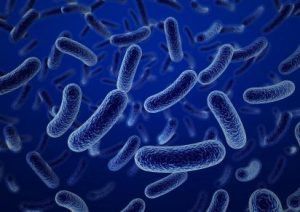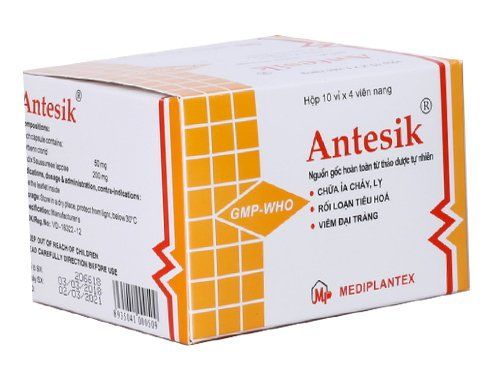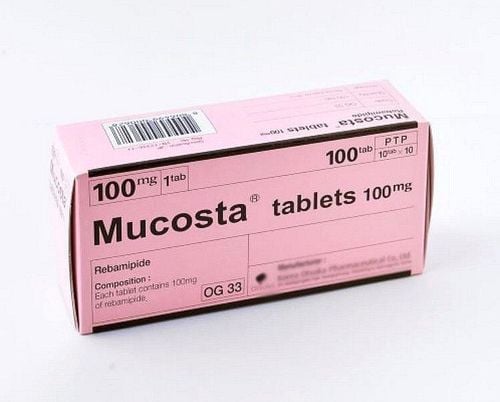This is an automatically translated article.
Posted by Master, Doctor Nguyen Thi Dinh - Pediatrician - Pediatric Center - Vinmec Times City International Hospital
Bacillary dysentery is an acute intestinal infection caused by Shigella bacteria, the disease mainly occurs in children under 5 years old with diverse clinical manifestations.
1. What is bacillus dysentery?
Bacillary dysentery, also known as bacillary dysentery or schizophrenia, is dysentery caused by Shigella bacteria that causes an infection of the intestines and rectum. The main signs of Shigella infection are diarrhea and often bloody stools.In the typical form, the disease manifests in 2 main syndromes:
Dysentery syndrome: Manifestations of abdominal cramping pain along the colonic frame, frequent straining and bloody bloody stools many times a day. Infectious syndrome: high fever 39-400C, accompanied by chills, body aches, fatigue, loss of appetite, nausea or vomiting. Children may have convulsions due to high fever, or neurotoxicity. The state of rapid decline, fatigue, emaciation, dry lips, dirty tongue.

Vi khuẩn Shigella là nguyên nhân gây bệnh lỵ trực trùng
2. How is the disease transmitted?
The disease is easily spread through direct contact between children in the same kindergarten, kindergarten, in the same family or through intermediate contact such as toys, doorknobs,...
However, in developing countries development, indirect transmission via flies, contaminated food and drinking water is often the main route of transmission.

Bệnh có thể lây truyền qua tiếp xúc trung gian như đồ chơi
3. How dangerous is the disease if the child gets it?
Children with bacillus dysentery have diverse clinical manifestations:
Mild form: Children with mild diarrhea or no obvious symptoms, only dull abdominal pain, transient loose stools, then self-limited. Severe and acute form: The child has very high fever, chills, possibly with convulsions, neurological manifestations: lethargy, lethargy, headache, stiff neck, massive bloody diarrhea. In some cases, death may result from hemolytic syndrome, high blood urea nitrogen or endotoxin shock, electrolyte disturbances, circulatory failure. Chronic form: Children with prolonged bloody diarrhea lose a lot of protein, prolonged electrolyte disturbances, poor eating, leading to physical exhaustion.
4. How is the disease treated?
Children with bacillus dysentery need to be hospitalized for monitoring and treatment of electrolyte disturbances and other associated disorders. Treatment of bacteria-killing antibiotics is appropriate for each sick child and different medical facilities.

Thuốc kháng sinh được sử dụng để điều trị bệnh lỵ trực khuẩn
5. Can the disease be prevented?
Bacillary dysentery is a disease for which there is no vaccine, but it can be prevented by the following measures:
Educating the community on the importance of hand washing with soap Disease prevention: building integrated latrines toilet. Protect, filter and clean domestic water sources. Kill flies, dispose of garbage. Food safety inspection. Encourage breastfeeding. Water should be boiled before giving it to children. Isolate sick people well. Sanitize the patient's clothes and blankets. Disinfection of feces before discharge into the environment. Depending on the extent that children with bacillus dysentery will have different levels of danger and complications. However, whether in severe or mild form, the disease still causes danger, digestive disorders, and seriously affects the health of children. Therefore, parents need to know the signs of the disease to soon take their children to medical centers for examination and treatment.
Besides, parents also need to supplement their children with essential micro-minerals such as zinc, lysine, chromium, selenium, vitamin B1, ... to fully meet the nutritional needs of children. The addition of these essential vitamins also supports digestion, enhances nutrient absorption, improves anorexia, and helps children eat well. Parents can simultaneously apply dietary supplements and functional foods derived from nature for easy absorption. The most important thing is that improving your baby's symptoms often takes a long time. The combination of many types of functional foods at the same time or continuously changing many types in a short time can cause the baby's digestive system not to adapt and completely not good. Therefore, parents must be really patient with their children and regularly visit the website vimec.com to update useful baby care information.













